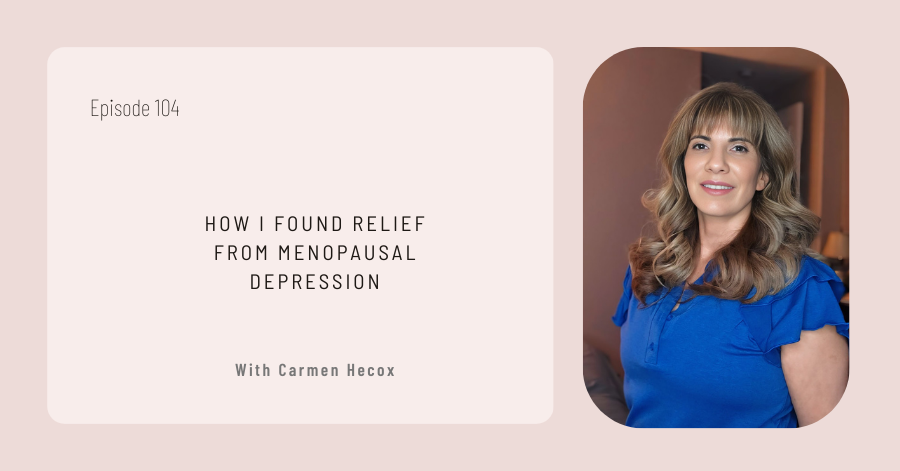How I Found Relief from Menopausal Depression
Natural Strategies to Overcome Hormonal Shifts
I still remember the day I first realized something felt very wrong. My entire body ached, my mind was in a fog, and I was convinced a virus had taken hold of me. Yet, the days turned into weeks, and I showed no signs of improvement. That was when I knew this was something bigger than a simple illness. I discovered I was dealing with menopausal depression. Even as someone who had always powered through life’s challenges, I couldn’t simply will this new reality away.
In the next few paragraphs, I share what I learned about recognizing hormonal changes, creating healthy practices such as walking, meditation, and better sleep routines, and leaning on my family for support. By the time you’ve finished reading, you’ll have a clear sense of the steps I took to regain my energy and positivity. I hope my story resonates with you and gives you some fresh ideas on how to navigate the ups and downs that accompany major life transitions.
My Early Struggle with Menopausal Depression
I never saw it coming. One morning, I woke up feeling completely drained, and every muscle in my body felt sore. Initially, I thought I was battling a cold or flu, assuming it would pass in a few days. But when two or three weeks went by, and I still felt awful, I started to panic. It made no sense: why wasn’t my immune system stepping in? Why was I feeling even more fatigued and moody?
Questioning My Mental Health
Soon, I noticed I was becoming distant toward the people closest to me. I told my friends and family I was avoiding them because I felt sick. Deep down, I was wrestling with pervasive sadness, irritability, and a lack of interest in everyday activities. The isolation was overwhelming. The more I read about depression, the more I realized my symptoms matched something specific to midlife changes: menopausal depression.
Differentiating Between Depression Disorder and Menopausal Depression
In my journey, I also learned that there’s a distinct difference between depression disorder and what I was experiencing. Depression disorder (often just called depression) can last for weeks at a time, showing up as a persistent depressed mood, loss of pleasure, or significant feelings of emptiness. People living with depression disorder generally need a combination of medication and professional support, such as a therapist or psychiatrist, to manage their symptoms.
Menopausal depression, however, is tied more closely to the fluctuations of estrogen and progesterone in women aged 40 to 60. These hormone dips can trigger mood swings, irritability, anxiety, and a general sense of sadness. In my case, I believed that my “virus” was actually my body reacting to these shifts. Once I recognized the hormonal factors at work, I began to explore natural ways to feel better and restore my sense of emotional balance.

Understanding the Hormonal Imbalance
Hormones play a huge role in mood regulation. When my estrogen and progesterone levels began to decline, the decrease seemed to drain my motivation and happiness. At first, I had no idea these hormones also interact with serotonin—a chemical in the brain often called the “happy hormone.” If serotonin plummets, it can lead to irritability, sadness, and even disruptions in sleep and appetite.
The Domino Effect of Changing Hormones
The most alarming part was how quickly one symptom fueled another. Low energy made me less interested in doing anything I once enjoyed. My shifting hormone levels made it tough to handle everyday stressors. The mental fog crept in, making it harder to focus or remember simple tasks. At night, hot flashes jolted me awake, compounding my exhaustion. It was a vicious cycle, but once I understood the root cause, I found my footing and began to put together a plan to tackle it.
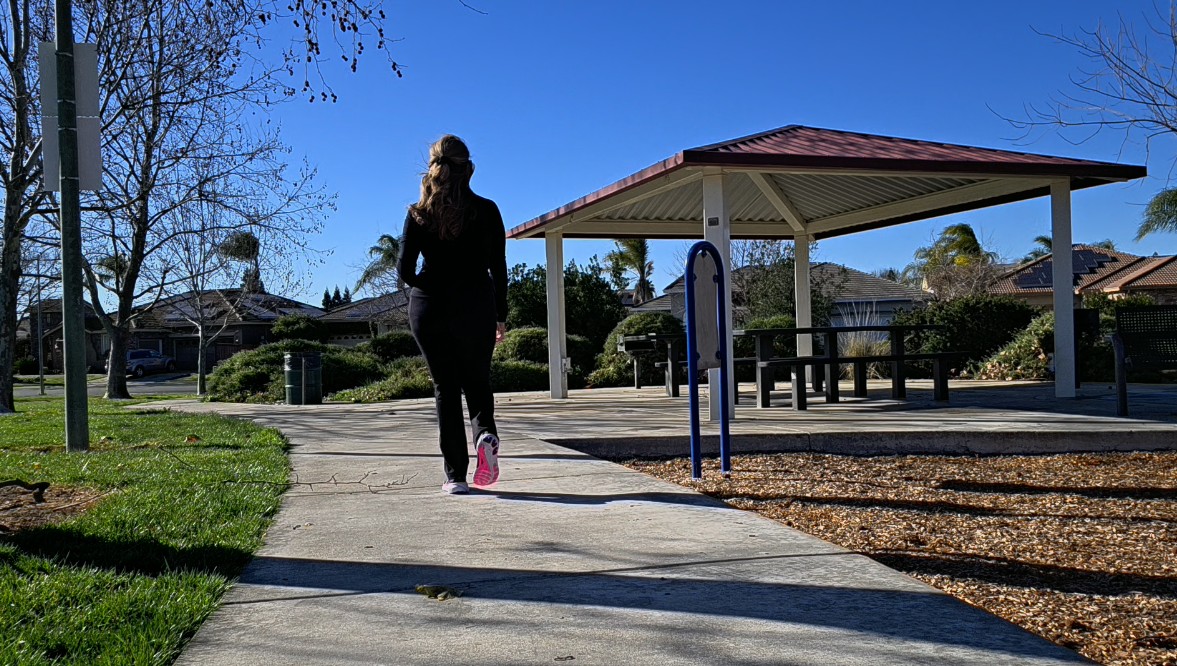
The Power of Outdoor Activity
When I realized that menopausal depression was a significant component of my fatigue and low mood, I was determined to find simple practices that could help me cope. The first step involved a bit of a leap: getting outside for a walk. Although it might sound minor, at the time, it felt like climbing a mountain.
My First Steps
I vividly recall my first day walking around the neighborhood. My energy level was so low that simply stepping out the door felt like a monumental achievement. The moment I started moving, though, a surprising shift happened. Fresh air and natural light seemed to remind my body what it felt like to be alive and engaged with the world. I felt myself standing taller, both physically and mentally. I noticed that after these walks, my mood improved, my hot flashes lessened, and I was more patient when life’s little hiccups came my way.
Boosting Endorphins and Blood Flow
One key benefit of walking is that it promotes endorphins—often called “feel-good” chemicals. These endorphins can reduce stress and help alleviate the hopelessness often associated with menopausal depression. At the same time, better blood flow throughout my body improved my overall sense of wellness. If you’re struggling with menopause-related mood changes, consider lacing up your shoes and taking a brisk walk. It might feel daunting at first, but it can deliver immediate and ongoing benefits.
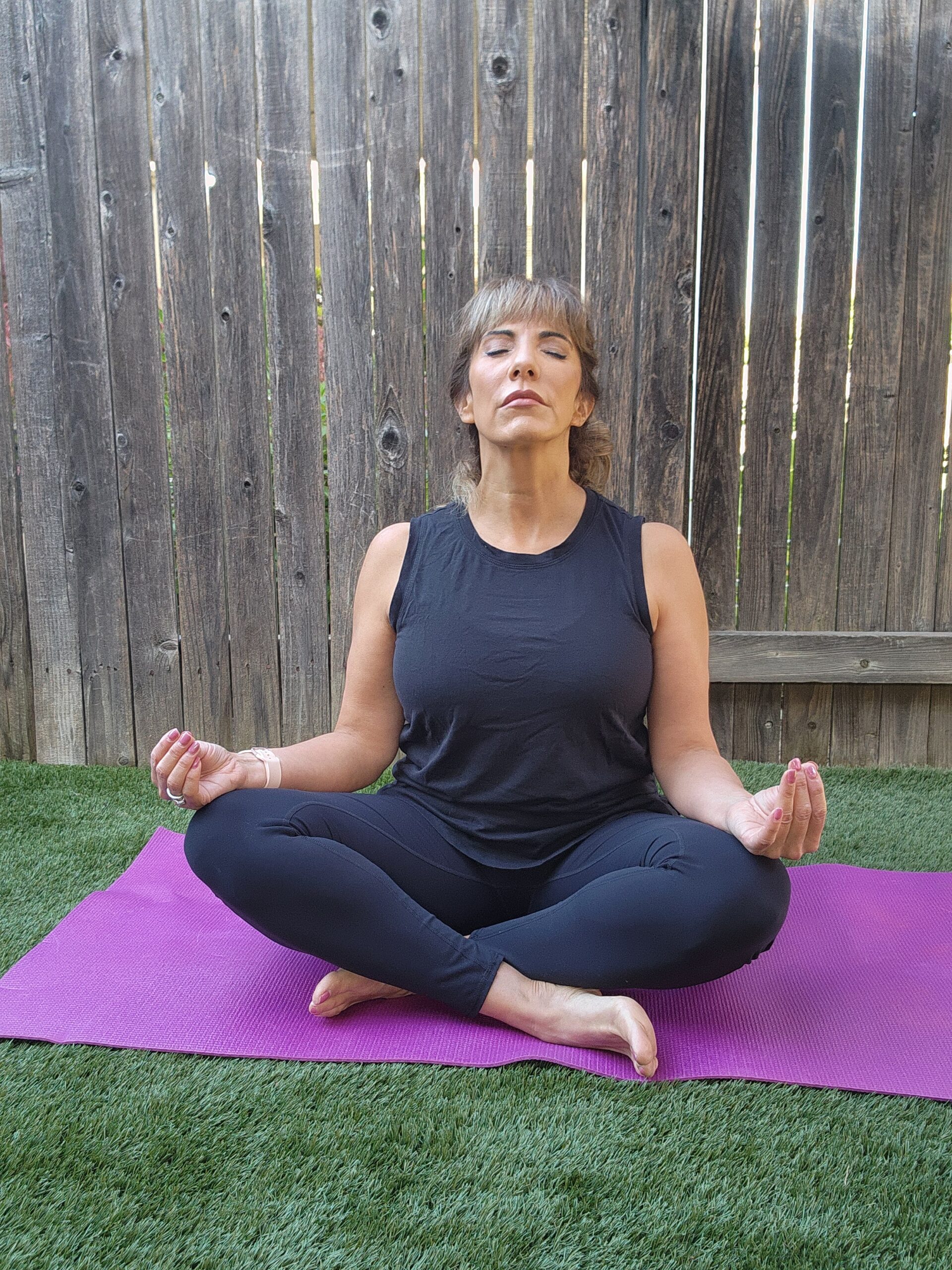
Meditation and Mindfulness
Another game-changer for me was meditation. It wasn’t something I’d previously been drawn to, mostly because I felt too restless to sit quietly. But after talking with a guest on my show, Jennifer Hill, who shared her personal experience of using meditation to navigate her own mental health challenges, I decided to give it a try.
A Moment of Stillness
Jennifer’s approach was simple: she carved out moments of stillness to quiet her mind and organize her thoughts. Inspired by her, I began a daily practice—though I put my own spin on it by incorporating prayer. I used the time to speak with God, aligning my internal struggles with a sense of higher purpose and acceptance. This practice gave me the mental space to unravel negative self-talk, especially that nagging sense of failure from unmet goals and timelines. Through regular meditation, I learned to let go of unrealistic standards I had set for myself. This newfound clarity replaced my old pattern of self-criticism with self-compassion.
Slowing Down the Spiral
Meditation can also function like a brake on mental spirals. Often, anxiety or depression can feel like a runaway train of relentless thoughts. Spending a few quiet minutes with my eyes closed, and my attention on my breath allowed me to slow down, reflect, and then release that unhelpful inner dialogue. In the simplest terms, meditation helped me be more present. And in that presence, I found hope and optimism.
Join our community
Connect with like-minded individuals.

Embracing Restful Sleep
Sleep became a significant pillar in my fight against menopausal depression. I had the fortune of discussing the importance of sleep with an expert, Dr. Val Cacho, who is a sleep medicine physician. She explained that when we sleep, our bodies aren’t just resting; they’re repairing cells, restoring energy, and regulating hormones and proteins that support brain health.
Aiming for Seven to Eight Hours
Before, I used to pride myself on being able to function on very little sleep. But that only exacerbated my menopausal depression and left me feeling groggy and irritable. Embracing the goal of seven to eight hours of uninterrupted sleep became nonnegotiable. Once I committed to going to bed at a reasonable hour, I noticed a dramatic improvement in my mental state. I experienced fewer mood swings, had fewer hot flashes, and felt more capable of facing challenges without losing my temper.
Building a Solid Sleep Routine
I created a bedtime ritual that included turning off electronics an hour before sleep and sipping a warm decaffeinated tea. A small effort like this helped me wind down and signaled to my brain that it was time to rest. The act of letting go of my day’s stresses or mental to-do lists also helped. Now, whenever I crawl into bed, it’s with the anticipation of letting my body do its healing work so I can wake up with a clearer mind.
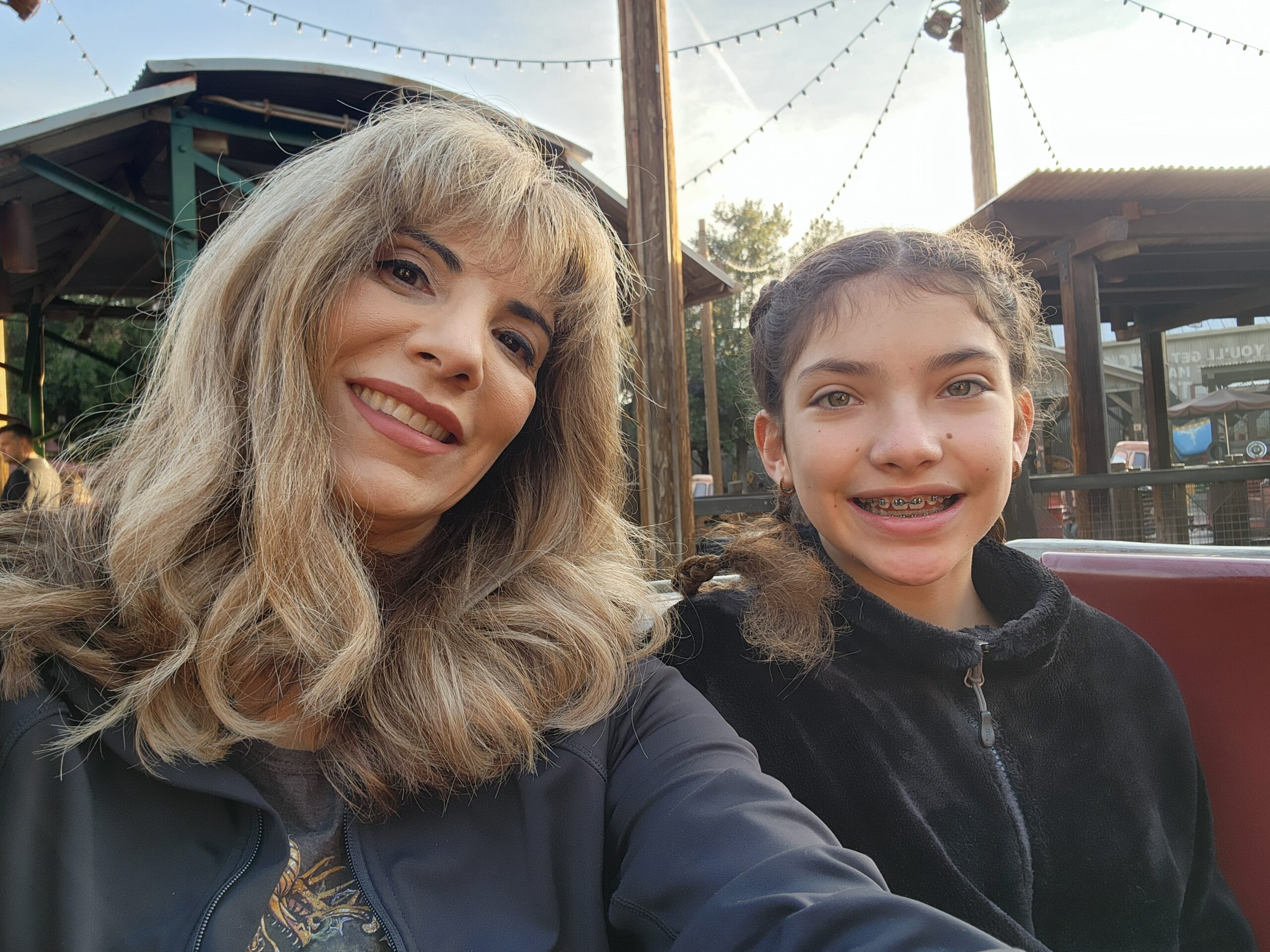
Nurturing Connections and Emotional Support
A final element I can’t ignore is how essential my family’s support was (and continues to be) during this period. When I was bogged down in the worst of menopausal depression, I didn’t always respond to their texts, calls, or invitations. Yet, they never stopped encouraging me or reminding me of the love and purpose surrounding me.
Carving Out Time for Loved Ones
I decided to make weekends and evenings strictly off-limits for work. Instead, I spent them with my husband and daughter. Our family walks, and simple conversations over dinner gave me the emotional nourishment I needed. My loved ones helped me reconnect to who I was before menopausal depression took hold. On days when I was tempted to stay curled up on the couch, having people around me who believed in my strength was invaluable.
Being My Own Rescuer
However, I also realized that no one could “fix” me except me. Medication might be a lifeline for some, but I knew I had to be proactive in taking steps like walking, meditating, and getting quality sleep. While professional help is crucial for those with ongoing depression disorder, my path involved harnessing the resilience I’d built over time. I took that resilience and turned it inward, challenging myself to step outside, breathe deeply, and claim the hope I so desperately needed.

Reclaiming a Positive Mindset
Rebuilding my confidence was a crucial part of my journey. I had allowed negative thoughts and unmet goals to define how I saw myself. Each time I reminded myself that I was capable of tackling menopausal depression, I chipped away at that old, self-defeating narrative.
Changing My Inner Dialogue
For years, I told myself a story about everything I had failed to accomplish, all the goals I missed, and how time was slipping through my fingers. When I actively replaced that script with a kinder, more encouraging voice, I discovered that my mind was far more agile at focusing on solutions rather than problems. I no longer saw my future as a string of disappointments waiting to happen but instead as an opportunity to explore new goals at my current life stage.
Staying Consistent
It’s one thing to build new habits; it’s another to maintain them. There were mornings I didn’t want to get out of bed, afternoons when I felt too frazzled to meditate, and nights when I was too distracted to sleep on time. In these moments, I reminded myself that every time I made a decision that supported my well-being—whether it was a walk, some deep breathing, or reaching out to a friend—I was choosing to heal. Over time, these small decisions became my new normal, leading to a profound shift in how I viewed myself and my daily life.
A Quick Recap of Key Lessons
- Recognize the Signs: Sometimes, what feels like an unexplained illness can be menopausal depression. Understanding that your hormones directly affect your mood is the first step to finding relief.
- Get Outside and Move: Even if it’s just around the block, walking provides endorphins, better blood flow, and a renewed sense of vitality.
- Meditate or Practice Stillness: Slowing your thoughts and nurturing your spiritual side can unravel negative self-talk and restore emotional balance.
- Prioritize Sleep: Your body and mind need seven to eight hours to recover. Set a consistent bedtime and create a calming ritual before you turn in.
- Lean on Support Systems: Whether it’s your immediate family or close friends, invite them into your healing process. Their encouragement can be the push you need on difficult days.
- Adopt a Positive Mindset: Replace harsh internal judgments with affirmations that honor your resilience. Keep going even when it’s tough.
Moving Forward with Hope
Now, when I open my eyes in the morning, I no longer dread the day ahead. Instead, I feel a quiet gratitude that I’ve learned to manage my menopausal depression and that I’m steadily reclaiming my life. Sure, there are still difficult days, but I’m better equipped to handle them with walks, meditation, quality sleep, and the unwavering support of my family.
Realizing that I am my own rescuer gives me a powerful sense of liberation. My story isn’t an outlier, and I know many women face similar struggles. If you resonate with anything I’ve said, I encourage you to be compassionate with yourself and to consider small, deliberate steps. Even a brief walk in the morning or a ten-minute meditation can lead to meaningful change over time.
If you’re currently under professional care for depression or anxiety, keep those lines of communication open with your healthcare providers. They can help you tailor your treatment and ensure you’re on a safe path. Never drop medication on your own. Always speak with your doctor or mental health professional before making any changes.
Staying Connected and Looking Ahead
I’m grateful for the opportunity to share these insights on living a fuller life despite the challenges of menopausal depression. Hearing from medical experts like Dr. Val Cacho has shown me how important it is to prioritize sleep. Learning about meditation from Jennifer Hill has helped me calm the storm of racing thoughts. Every day, a simple walk reminds me that sunshine, fresh air, and even minor exercise can work wonders for both the body and soul.
If this conversation resonates with you and you’d like to stay in the loop for future insights, consider joining my email list. I often share new content, details about upcoming events, and updates on what I’ve been exploring in this journey toward greater well-being. I’d love to have you along for the ride and keep you informed about the latest episodes, expert tips, and inspiring stories.
Here’s to embracing natural strategies, honoring our own resilience, and finding genuine relief from the challenges that menopausal depression can bring. With the right resources and willingness to try new approaches, I'm confident that it’s absolutely possible to restore balance, vitality, and hope in this phase of life.
Watch the complete episode here.
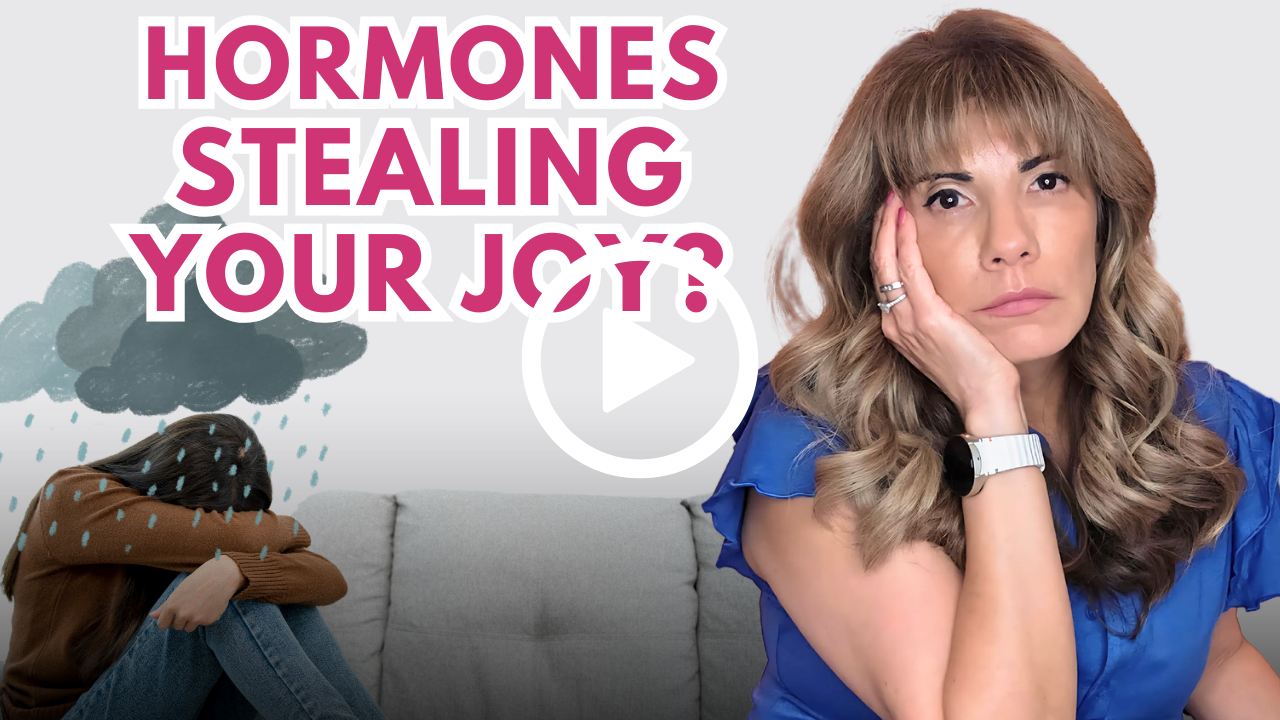
Resources Mentioned:


Midlife Sleep Struggles? Here’s What You Need to Know
Resilience Redefined: A Fresh Take on Flourishing in Midlife
Subscribe to Apple Podcasts, and don't forget to Rate and Review
Like what you heard? If so, please rate and comment on Apple Podcasts. And while you are there, let me know what you want to hear next.
And while you are there, don't forget to hit Subscribe.

